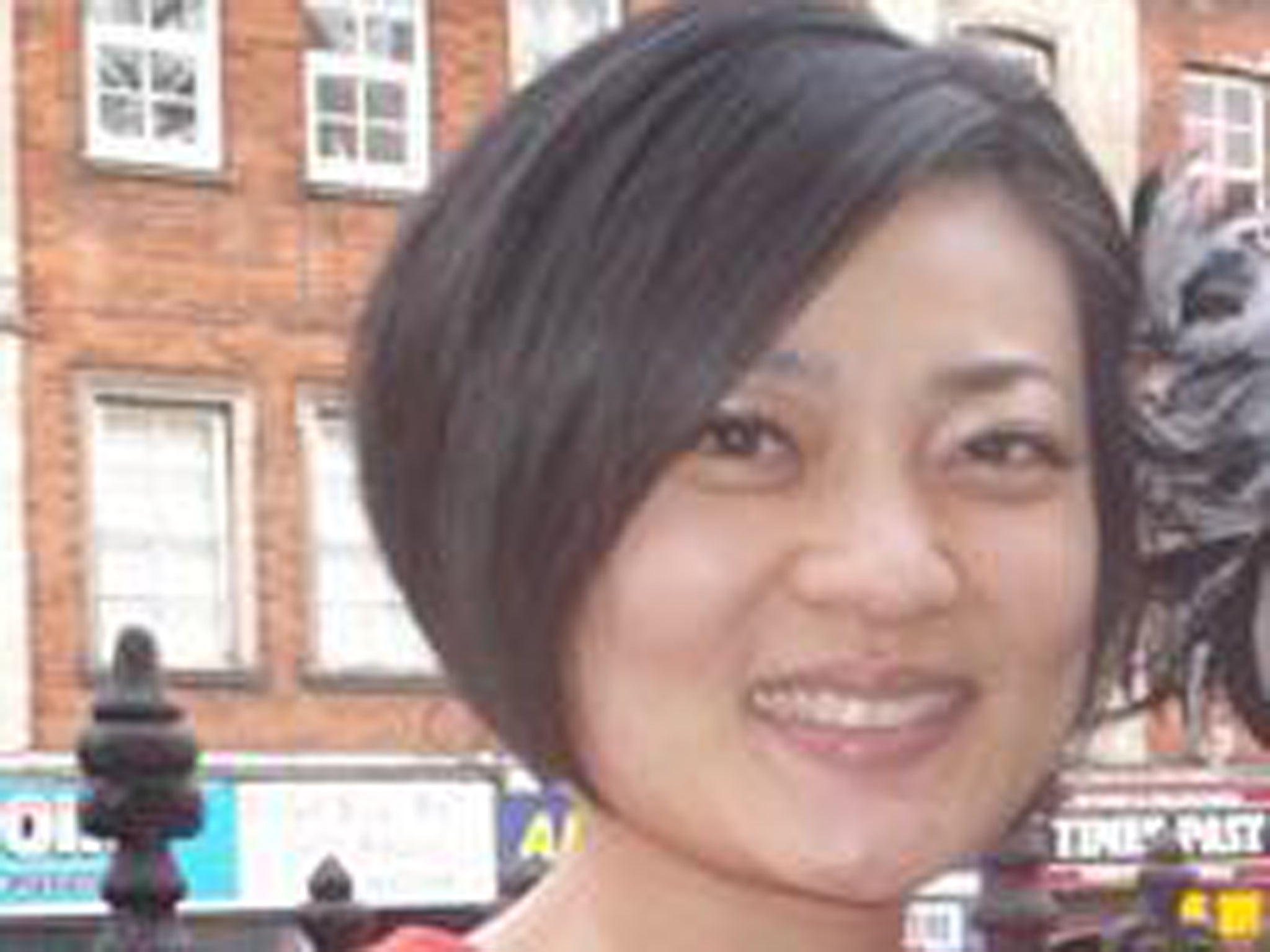Taiwanese intelligence officer Emily Mei Yeh faces long prison term in Taiwan after being refused asylum in UK
Emily Mei Yeh claims she was asked to undertake intelligence tasks she was not comfortable with

Your support helps us to tell the story
From reproductive rights to climate change to Big Tech, The Independent is on the ground when the story is developing. Whether it's investigating the financials of Elon Musk's pro-Trump PAC or producing our latest documentary, 'The A Word', which shines a light on the American women fighting for reproductive rights, we know how important it is to parse out the facts from the messaging.
At such a critical moment in US history, we need reporters on the ground. Your donation allows us to keep sending journalists to speak to both sides of the story.
The Independent is trusted by Americans across the entire political spectrum. And unlike many other quality news outlets, we choose not to lock Americans out of our reporting and analysis with paywalls. We believe quality journalism should be available to everyone, paid for by those who can afford it.
Your support makes all the difference.A Taiwanese military intelligence officer who claimed asylum in the UK will next week be sent home, where she faces a long period of imprisonment.
Emily Mei Yeh, 33, who worked in Taiwan’s Military Intelligence Bureau, is being held in Yarl’s Wood Immigration Removal Centre, Bedfordshire.
She was issued a removal notice on 8 January and will be flown to Taiwan on 18 January.
She had initially been told she would be flown out on 15 February, but the date was brought forward today, giving her a week's notice.
Ms Yeh says she was uncomfortable with what she was being asked to do by her employer in Taiwan.
“They were asking me to do stuff like gathering intelligence, especially gathering intelligence from China, Hong Kong and Macau,” she said.
She asked to resign or for an internal transfer but was denied. The authorities then punished her by restricting her liberty, she claims.
“I was like an example to all my colleagues, like this is what you get if you go against government or go against the nature of our work,” she said.
“My speech was being restricted. My travel was being restricted. It was like I’m not a human being anymore.”
She decided to flee Taiwan. In order to get her passport back from the government, she says, she took holiday leave and booked a flight to Bangkok. But when she got to the airport she bought a ticket to the UK instead without her government’s knowledge.
Arriving at Heathrow on June 18, 2012, she claimed asylum immediately. After three days, she was “dispersed” to Cardiff for ten days. Then she was found permanent accommodation in Newport.
Although she lived a happy life there for 18 months, volunteering at Oxfam and the Welsh Refugee Council, she was arrested and detained on 10 December, 2013.
Ms Yeh said she came to the UK because of its human rights record, but now says she feels she was “treated like a criminal” here too.
“I’m living in a modern concentration camp,” she said. “For prisoners you know when you’re getting out, but for me I don’t know when I’m getting out.”
She is almost certain she will be imprisoned in Taiwan.
On 23 December, staff were trying to remove her on an EVA Air flight from Heathrow.
“I felt pretty sick at that point because I had a kidney stone,” she said. “I was sitting on a chair and leaning against a counter and had my eyes closed."
Because she was ill she was allowed to stay.
Mike McGarvey, of McGarvey Immigration and Asylum Practitioners, who is representing Ms Yeh, said she has not leaked any sensitive information about Taiwan and claims her case was less likely to succeed because she was from a “friendly country”.
“If she was from North Korea she would probably be granted asylum,” he said.
A Home Office spokesperson said:
“The UK has a proud history of granting asylum to those who need it and all applications are carefully considered before a decision is made.
“We believe that those who fail to establish a genuine fear of persecution should return home. If they do not, we will enforce their removal.”
Join our commenting forum
Join thought-provoking conversations, follow other Independent readers and see their replies
Comments